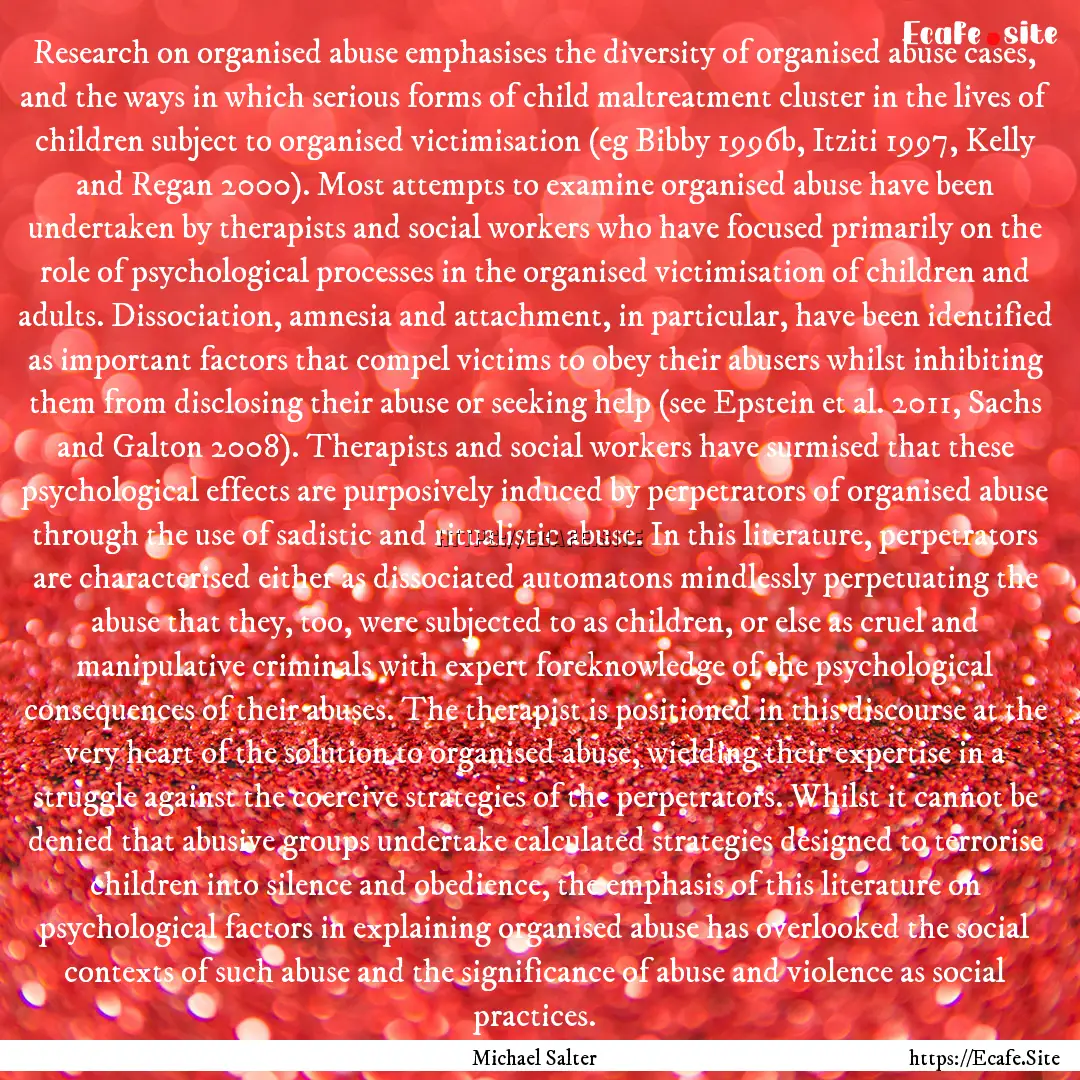
Report, if you have a problem with this page“ Research on organised abuse emphasises the diversity of organised abuse cases, and the ways in which serious forms of child maltreatment cluster in the lives of children subject to organised victimisation (eg Bibby 1996b, Itziti 1997, Kelly and Regan 2000). Most attempts to examine organised abuse have been undertaken by therapists and social workers who have focused primarily on the role of psychological processes in the organised victimisation of children and adults. Dissociation, amnesia and attachment, in particular, have been identified as important factors that compel victims to obey their abusers whilst inhibiting them from disclosing their abuse or seeking help (see Epstein et al. 2011, Sachs and Galton 2008). Therapists and social workers have surmised that these psychological effects are purposively induced by perpetrators of organised abuse through the use of sadistic and ritualistic abuse. In this literature, perpetrators are characterised either as dissociated automatons mindlessly perpetuating the abuse that they, too, were subjected to as children, or else as cruel and manipulative criminals with expert foreknowledge of the psychological consequences of their abuses. The therapist is positioned in this discourse at the very heart of the solution to organised abuse, wielding their expertise in a struggle against the coercive strategies of the perpetrators. Whilst it cannot be denied that abusive groups undertake calculated strategies designed to terrorise children into silence and obedience, the emphasis of this literature on psychological factors in explaining organised abuse has overlooked the social contexts of such abuse and the significance of abuse and violence as social practices. ”

Michael Salter
From : Organised Sexual Abuse



